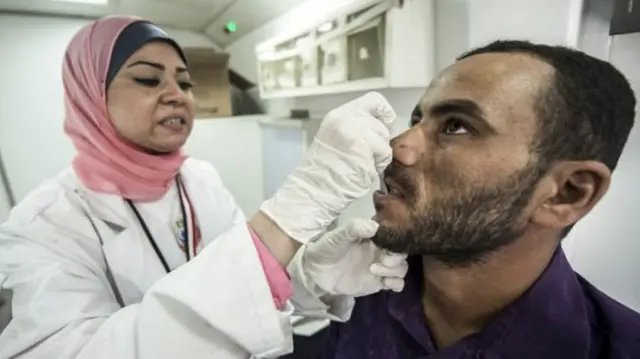Newly elected Maldives President Abdulla Yameen is attempting to put his country's finances in order by reducing the salaries of State run organizations as the Indian Ocean group of islands attempts to cope with high levels of debt.
The Maldives government has decided to direct companies owned by the government and companies with majority government shares to reduce the salary of their top executive officers, below the salary of government ministers.
President's Office said in a statement that President Abdulla Yameen has communicated the decision via letter to Finance Minister Abdulla Jihad on Monday.
President's Office in the letter also instructed the Finance Minister to report back with the implementation of the decision by Dec. 3.
Yameen won a long drawn out and expensive presidential election that lasted nearly three months on Nov. 16. One of his promises was to deal with crippling government debt that is around 80 percent of Gross Domestic Product (GDP).
Yameen has also promised to reduce his salary as president along with those paid out to high ranking members of government and take a tough stand to stomp out corruption. However, cuts to his expenses are yet to be announced.
The Maldives lucrative tourism industry, which accounts for as much as 70 percent of GDP, has taken a hit due to global financial difficulties resulting in fewer high spending tourists.
According to the International Monetary Fund's (IMF) latest report on the Maldives famous for its pristine beaches, the economy only grew by 3.5 percent in 2012.
A modest recovery is forecast for 2013 and beyond but balance of payments continues to be weak, with the current account deficit forecast at nearly 30 percent of GDP this year.
Gross international reserves have been declining slowly and could be more substantially pressured if major borrowings maturing in the next few months are not rolled over.
"The most pressing macroeconomic priority for Maldives is strengthening government finances, which have been weak for many years. The fiscal deficit is expected to rise in 2012 to 16 percent of GDP in cash terms, and likely even higher if one accounts for the government's unpaid bills, accumulated in an increasingly challenging environment for financing."
"The large deficit has implied a rise in the public debt ratio, which now stands at over 80 percent of GDP, and has also helped to boost national imports, thus worsening dollar shortages in the economy and putting pressure on reserves," the IMF report points out.
Analysts point out that the tourism industry is given generous tax concessions that reduce space for the government to provide funding for essential social benefits such as healthcare and education.
The IMF agrees insisting while Maldives has relatively strong revenues overall, there is scope to increase tourism taxation and selectively reverse recent duty reductions.
Social service programs concentrating on handouts would be better utilized if they are targeted only at the needy and would reduce government expenditure.
"Tighter monetary policy would help to support the exchange rate and the needed external adjustment. Higher Treasury bill yields, in conjunction with some technical changes to the monetary operations framework, may also help to ease the government's financing difficulties," the IMF recommends.
There is also concern over inadequate policing of State funds with little being done to stem corruption and mismanagement of resources. Policies that provide too much leeway for foreign funds to flow outside the conventional banking system was also highlighted by the IMF.
"Financial supervision could be strengthened and recent regulatory forbearance relating to provisioning requirements reversed. Finally, resorts' foreign-exchange licenses could be restricted to small-value amounts to help channel dollars through the formal banking system."
Maldives financial situation continued to decline after former President Mohammad Nasheed was ousted from power in an alleged coup in February 2012.
His replacement, President Mohammad Waheed was accused of increasing State expenditure and financial deals that were never properly investigated until he was voted out of power to make way for Yameen.
Local media reported as early as May 2012 on Maldives economic woes.
"The Maldives is now in a dangerous economic situation never before seen in recent history," local media quoted Governor of the Maldives Monetary Authority (MMA) Fazeel Najeeb as saying.
"Expenditure in the country has exceeded income, and as a result the budget deficit is increasing. From November 2010 inflation has also been going up," he added.
The country last year spent 63.1 percent of its GDP on state expenses, Najeeb claimed, adding that only four countries had worse percentages, including Cuba and Zimbabwe.
Yameen has taken tentative steps to deal with the growing economic worries of the Maldives but tougher action will have to be taken to reduce State expenditure, fast track reforms, reduce corruption and increase income to battle debt.
This will be the biggest challenge ahead for the newly elected president.
Uditha Jayasinghe
APD staff writer
 简体中文
简体中文

